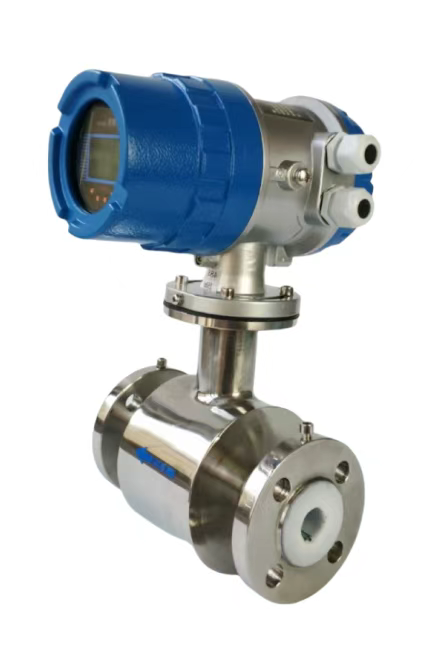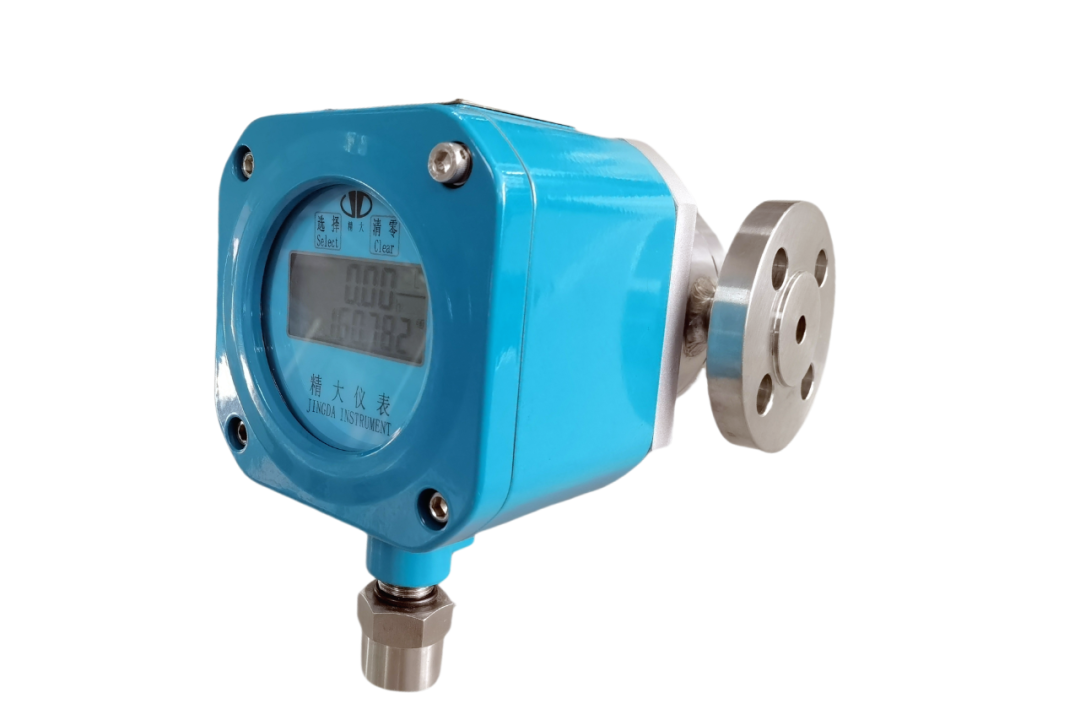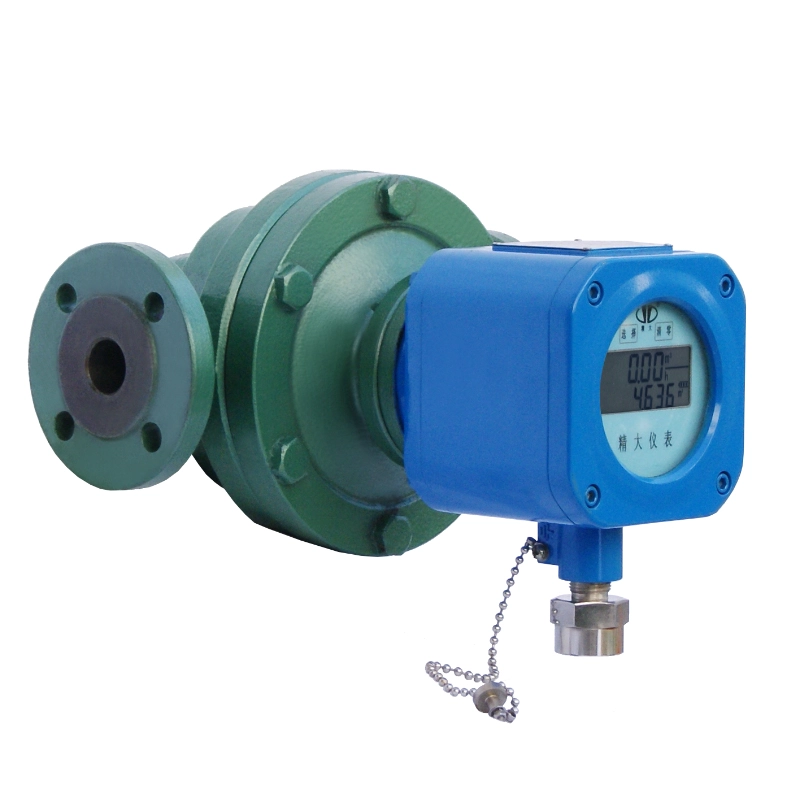عدادات تدفق السوائل: معدات أساسية لضمان سلامة الإنتاج في الصناعة الكيميائية
وقت الإصدار: 2025-05-15
في الصناعة الكيميائية، تُعدّ السلامة في الإنتاج أولوية قصوى. وتلعب عدادات تدفق السوائل، كأدوات مراقبة أساسية، دورًا حاسمًا في ضمان سلامة واستقرار عمليات الإنتاج. سواءً في نقل المواد الخام، أو التحكم في التفاعلات الكيميائية، أو في معالجة مياه الصرف الصحي ومراقبة تصريفها، فإن عدادات تدفق السوائل لا غنى عنها.

1. ضمان التحكم الدقيق في التفاعلات الكيميائية
في الإنتاج الكيميائي، يعد تحديد الجرعة الدقيقة للمواد الخام السائلة أمرًا بالغ الأهمية لضمان التقدم السلس للتفاعلات. عدادات تدفق السوائل يمكنها مراقبة معدل تدفق المواد الخام والتحكم فيه باستمرار، مما يضمن إضافة كل مادة كيميائية بالنسب الصحيحة، وبالتالي التحكم في معدل التفاعل ودرجة حرارته، ومنع الظروف الخطرة، مثل سرعة التفاعلات أو بطءها. كما أنها تساعد في الكشف عن أي شذوذ أو تسريبات في التدفق، مما يسمح باتخاذ إجراءات الاستجابة في الوقت المناسب.
2. منع الفيضانات أو التسربات لحماية السلامة والبيئة
العديد من المواد السائلة في الصناعة الكيميائية خطرة، ويمكن أن تُشكل الكميات الزائدة أو التسربات منها تهديدات خطيرة للمعدات والبيئة والعاملين. توفر عدادات تدفق السوائل مراقبة مستمرة لمعدلات التدفق، وفي حال اكتشاف أي خلل (مثل التدفق الزائد أو تقلبات في معدل التدفق)، فإنها تُطلق تنبيهات تُنبه المُشغلين لإجراء تعديلات أو إيقاف تشغيل النظام، مما يمنع الحوادث المحتملة بفعالية.
3. تحسين استخدام الطاقة وخفض التكاليف
في الصناعة الكيميائية، لا تُسهم عدادات تدفق السوائل في تعزيز السلامة فحسب، بل تُساعد أيضًا على تحسين استخدام الطاقة وتقليل الهدر غير الضروري. فمن خلال التحكم الدقيق في تدفق السوائل، يُمكن للشركات استخدام المواد الخام والطاقة بكفاءة أكبر، مما يُقلل تكاليف الإنتاج ويُقلل من التلوث البيئي، وبالتالي يدعم التنمية المستدامة للأعمال.
4. مراقبة دقيقة لمعالجة مياه الصرف الصحي لضمان الامتثال البيئي
غالبًا ما يُنتج الإنتاج الكيميائي كميات كبيرة من مياه الصرف الصحي، والتي يجب معالجتها وفقًا للوائح البيئية الصارمة. تُساعد عدادات تدفق السوائل في مراقبة تدفق مياه الصرف الصحي، وتعمل بشكل وثيق مع أنظمة معالجة مياه الصرف الصحي لضمان امتثال المياه المعالجة لمعايير التصريف، ومنع الانبعاثات المتجاوزة للحدود، والتلوث البيئي، والمسؤوليات القانونية.
5. تعزيز موثوقية المعدات وكفاءة الإنتاج
توفر عدادات تدفق السوائل بيانات فورية، مما يُمكّن المُشغّلين من البقاء على اطلاع دائم بظروف الإنتاج، ويضمن تشغيل المعدات بأفضل أداء. في حال حدوث أي مشكلة في المعدات، تُمكّن وظيفة تنبيه الشذوذ في عداد التدفق العمال من اكتشاف المشكلة فورًا وإجراء التعديلات اللازمة، مما يمنع التآكل المفرط أو توقف الإنتاج، وبالتالي يُحسّن كفاءة الإنتاج.
6. أنواع عدادات تدفق السوائل واختيارها
في الصناعة الكيميائية، لكل نوع من عدادات تدفق السوائل مزاياه وعيوبه. على سبيل المثال، مقاييس التدفق الكهرومغناطيسية تُعد عدادات التدفق التوربينية مثالية لقياس السوائل المسببة للتآكل، بينما تُعد عدادات التدفق التوربينية مثالية للسوائل منخفضة اللزوجة. اختيار عداد التدفق المناسب لظروف محددة لا يُحسّن دقة القياس فحسب، بل يضمن أيضًا استقرار المعدات وسلامتها على المدى الطويل.
تُعد عدادات تدفق السوائل من الضمانات الأساسية لسلامة الإنتاج في الصناعات الكيميائية. فهي تساعد الشركات على التحكم الدقيق في عمليات الإنتاج، وتقليل استهلاك الطاقة، وضمان تلبية معالجة مياه الصرف للمتطلبات التنظيمية، ومنع التلوث البيئي. يُعد اختيار عداد التدفق المناسب وإجراء الصيانة والمعايرة الدورية أمرًا أساسيًا لضمان تحقيق شركات الكيماويات إنتاجًا آمنًا وفعالًا وصديقًا للبيئة. مع التقدم التكنولوجي، وظهور... عدادات تدفق السوائل الذكية لقد جعلت مراقبة الإنتاج في الصناعة الكيميائية أكثر دقة وأتمتة، مما أرسى أساسًا متينًا للتنمية المستدامة للشركات.


